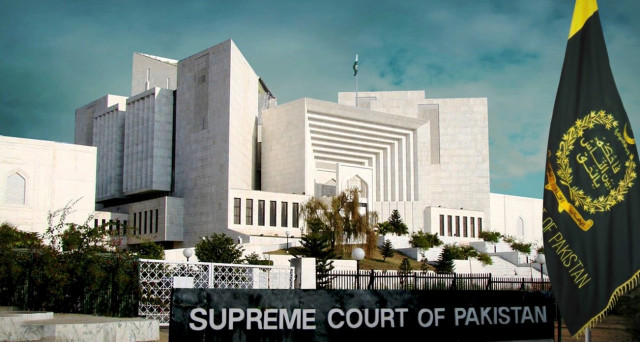Fate of constitution at stake: SC
We have to decide the fate of the country’s constitution in this case, said Chief Justice Iftikhar Chaudhry.

While resuming arguments in defence of the piece of legislation before a 17-member larger bench of the Supreme Court, Additional Attorney General K K Agha said that the SC has no jurisdiction to review amendments in the constitution and that legislation is only the parliament’s job.
The CJ responded that it is not appropriate to say that parliament has unlimited powers.
Agha said that parliament represents the will of the people and it works according to their aspirations.
He added that if it is declared necessary to directly approach people for every amendment, then there will be no justification for articles 238 and 239.
“This means the authority of the parliament is unlimited,” Justice Javed Iqbal observed to which Agha responded that as a public institution, parliament represents the will of the people. “According to other counsels of the federation ‘people’s will’ is merely a concept,” Justice Jawad S Khawaja remarked to which Agha submitted that there is an electoral system and through this system elections are conducted to elect members of parliament and that “people’s will” is not merely a concept.
Justice Asif Saeed Khosa asked Agha how the Supreme Court can assess whether the legislation is according to the aspirations of the people.
“People and civil society will automatically come out on the streets to protest and raise their voice against the law if the amendment is against their will,” Agha said.
“If article 175 is affecting the independence of judiciary, then should the court wait for people to come out on the streets to protest,” queried Justice Khawaja.
Later Agha submitted that the parliament was given the mandate by the people to change the procedure for the appointment of judges. Justice Khawaja said that the amendment is not articulating the notion, which was pledged at the time of elections.
Agha responded that the Raza Rabbani committee was composed of all political parties and it discussed the appointment of judges in detail. “The record provided to the SC does not include the detailed discussion on the appointment of judges,” said Justice Khawaja.
Justice Ramday observed that the suggestions for amendments in the judicial system were regarding the lower judiciary but the discussions held were not on the formation of the commission but the vigilance of the parliamentary committee.
Justice Tassaduq Jilani said: “In my eyes, the new procedure for the appointment of judges is contrary to the constitution. In such a situation what should the court do?” “In my opinion it is not contrary to the constitution” Agha submitted after which the hearing was adjourned until Tuesday (today).
Published in The Express Tribune, August 10th, 2010.



















COMMENTS
Comments are moderated and generally will be posted if they are on-topic and not abusive.
For more information, please see our Comments FAQ